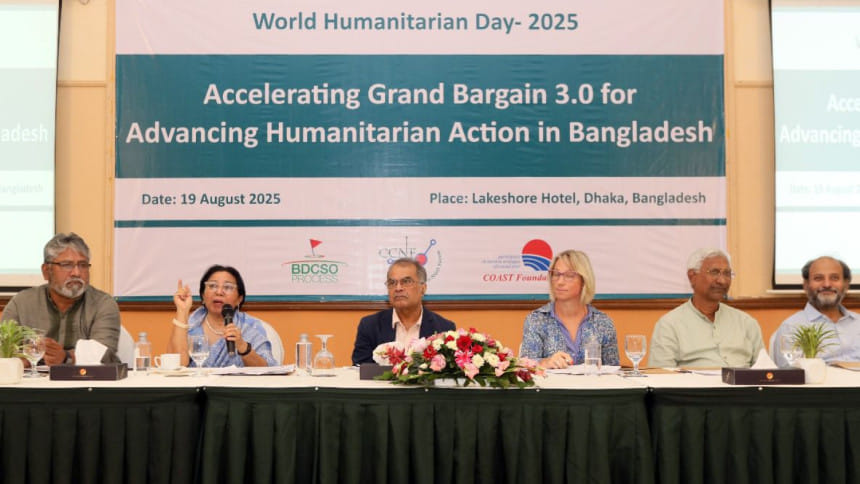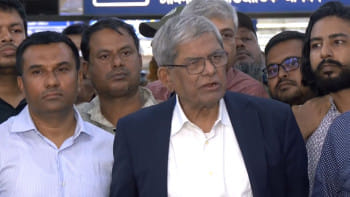Experts urge direct funding to local actors in Bangladesh

As development aid cuts are on the rise, aid agencies are calling for effective use of funding and transparency at all levels to ensure that people at the grassroots benefit the most during humanitarian crises.
They suggested capacity building of the local non-profits as per the Grand Bargain commitment and promote sustainable practices that can reduce the dependence on aid.
The observations were made at an international seminar titled "Accelerating Grand Bargain 3.0 for Advancing Humanitarian Action in Bangladesh" organised by COAST Foundation, BDCSO Process, and Cox's Bazar CSO-NGO Forum at a city hotel today.
The Grand Bargain commitment was adopted in Istanbul during May 2016 at the World Humanitarian Summit and signed by around 70 parties, including different donor countries, UN agencies, INGOs, etc, to advance humanitarian action, speakers said at the event moderated by COAST Foundation Executive Director Rezaul Karim Chowdhury.
Its objectives included localisation of aid, quality funding to local national actors, and accountability to the affected population -- something that is more important than ever as the USAID fund cuts have already affected the developing world, including Bangladesh.
With the country graduating LDC status by next year, its access to soft loan, trade privileges by the developed countries will be curtailed.
In his keynote, Md Iqbal Uddin of COAST Foundation said while Grand Bargain 3.0 is set to conclude in 2026, progress remains limited.
He urged donors and aid organisations to fulfil their commitments by ensuring at least 25% direct funding to local actors, providing multi-year and flexible funding, ensuring mutual accountability, and support for local leadership.
Manusher Jonno Foundation Executive Director Shaheen Anam said accountability and transparency apply equally to both donors and implementing organisations, underscoring the importance of ensuring that aid reaches the right beneficiaries.
Gawher Nayeem Wahra of Disaster Forum reminded that localisation is not only about funding but also about the localisation of resources.
Referring to a study, Sudhanshu S Singh of Humanitarian Aid International in India said only 6 percent of funding currently reaches local actors directly, and urged for stronger support for them.
Abdul Awal of Noakhali Rural Development Society cautioned that aid cuts put local actors at greater risk. He stressed the importance of being prepared for unforeseen crises and negotiating better terms with donors.
Matilda Svensson, first secretary at the Embassy of Sweden in Bangladesh, highlighted that Sweden and SIDA already provide 25 percent direct funding to local and national actors, fulfilling the Grand Bargain commitment.
She emphasised the need for signatories to build equitable partnerships and avoid subcontracting in the development sector.

 For all latest news, follow The Daily Star's Google News channel.
For all latest news, follow The Daily Star's Google News channel. 



Comments